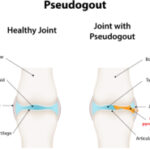PHILADELPHIA—Patients with rheumatic diseases often mount an adequate immune response after receiving COVID-19 vaccinations, but that is not always the case, and certain medications make patients more prone to having an insufficient response, said Judith James, MD, PhD, chair, Arthritis and Clinical Immunology Research Program, Oklahoma Medical Research Foundation, Oklahoma City, at an ACR Convergence…

Contraception, Abortion & Rheumatic Disease after Dobbs
PHILADELPHIA—As rheumatologists, we care for patients who may or may not want to become pregnant. We aren’t obstetricians or gynecologists, but several of the drugs we prescribe for active rheumatic disease can negatively affect pregnancy outcomes. It’s imperative we understand how to effectively counsel our patients with rheumatic disease on the risks and benefits of…

An Integrative Approach to the Treatment of Rheumatoid Arthritis
PHILADELPHIA—It is often the case that a holistic approach to the management of autoimmune disease is what patients are looking for and may indeed provide optimal care for these patients. At ACR Convergence 2022, the session titled ACR Guideline for Physical, Psychosocial, Mind-Body and Nutritional Interventions for Rheumatoid Arthritis: An Integrative Approach to Treatment sought…

Pseudo-What? Exploring the Classification Criteria Development Process for CPPD
PHILADELPHIA—The term pseudogout has been a source of confusion among rheumatologists, especially as our understanding of calcium pyrophosphate crystal deposition (CPPD) disease has become more nuanced. This condition has many complex and interesting facets that warrant closer investigation. An ACR Convergence 2022 session sought to update the audience on the progress to date in developing…

Blood Is Thicker Than Water: Updates on the ACR/EULAR Antiphospholipid Syndrome Classification Criteria
PHILADELPHIA—Ever since the seminal work of C. Lockard Conley, MD, in 1952 of the discovery of the lupus anticoagulant, antiphospholipid syndrome (APS) has been of great interest to rheumatologists, hematologists and many others. At ACR Convergence 2022, the session titled Draft ACR/EULAR Antiphospholipid Syndrome Classification Criteria sought to summarize the rigorous process that went into…

Telehealth Brings Opportunities to Enhance Patient Care
During an ACR webinar in August, presenters discussed multiple aspects of telehealth in rheumatology, especially related to rheumatology fellowship training. They agreed that although telehealth represents one potential avenue to improve patient access to treatment for rheumatic disease, we must keep identifying the best ways to employ telehealth to enhance care. Impact of Pandemic Telemedicine…

Rheumatology Medications with Limited Safety Data: How Do We Use Them in Pregnant Patients?
How does a rheumatologist treat a pregnant woman when many medications are not approved for pregnancy or safety data are limited?
ACR Workforce Solutions Committee Crafting Answers to Looming Workforce Shortage
With a shortage of rheumatologists looming, the committee is working to avert a void in patient care.

Highlights from the ACR Review Course 2022
PHILADELPHIA—At ACR Convergence 2022, the much-anticipated ACR Review Course featured talks from eight experts. Topics reflected the heterogeneity of our field and included Sjögren’s disease, spondyloarthritis (SpA), osteoarthritis (OA), paraneoplastic rheumatic syndromes, metabolic bone disease, statin myopathy, Raynaud’s phenomenon and autoinflammatory syndrome. Here, I share highlights from this comprehensive, six-hour session. Sjögren’s Disease Sara S….

String of Pearls: Lessons in Rheumatoid Arthritis
PHILADELPHIA—William “Bill” R. Palmer, MD, MACR, was the first board-certified rheumatologist in Omaha, Neb., where he spent his entire 43-year clinical career and established himself as a great clinician, mentor and educator. Although Dr. Palmer passed away from metastatic thyroid cancer in August 2021, his memory lives on through his physician colleagues and at ACR…
- « Previous Page
- 1
- …
- 24
- 25
- 26
- 27
- 28
- …
- 103
- Next Page »